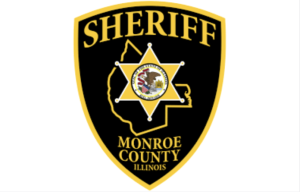Vaccine prep for long-term facilities
As the vaccination of health care workers for COVID-19 continues, residents and employees of long-term care facilities in Monroe County will soon have the chance to get the shot.
Nationwide, major pharmacies are handling vaccinations for those locations, with CVS and Walgreens serving Illinois.
That is because the U.S. Department of Health and Human Services announced in October it was partnering with those companies to offer on-site COVID-19 vaccinations to senior care and assisted living facilities residents as part of Operation Warp Speed.
“Today’s historic pharmacy partnership will truly help jurisdictions solve a logistical hurdle and decrease the burden of distributing, administering, and reporting COVID-19 vaccination for both states and long-term care facilities,” Centers for Disease Control and Prevention Director Dr. Robert Redfield said when announcing the program. “CDC is proud to be a part of this public-private partnership that is advancing care for the nation’s most vulnerable.”
Facilities had the opportunity to sign up for the program in November, and Monroe County Health Department Administrator John Wagner said every one here did.
“The last list I saw from the state, every one of our (facilities) has signed up,” he said.
As part of the partnership, CVS and Walgreens will schedule and coordinate on-site clinics with each facility, order vaccines and related supplies, ensure proper storage, administer vaccines to all residents and staff not yet vaccinated, report vaccination data to the appropriate levels of government and adhere to all COVID-19 testing requirements.
The program has no out-of-pocket costs for individuals, as the businesses will bill private and public insurance for the vaccine administration fee.
Wagner said he was not sure when vaccinations will begin taking place at all facilities, though he said Monday that Oak Hill Senior Living & Rehabilitation Center in Waterloo will begin inoculating individuals this week.
“Right now, they are still scheduling and contacting long-term cares,” he said. “They’re just going to make the rounds as quick as they can.”
Once the CDC sends a request to activate the program, it expects it will take about two months to complete it across the country.
After the initial round of vaccines is complete, long-term care facilities can continue working with CVS or Walgreens or shift to a new pharmacy for future vaccination needs.
Wagner said the county’s pharmacies have already begun getting the Pfizer-BioNTech vaccine, as they have the ability to store it at the ultra-cold temperatures required.
In Illinois, he said the only way staff of nursing homes or assisted-living communities have been vaccinated is if they work in a hospital associated with those facilities.
“We are not supposed to be doing the workers,” Wagner said of the health department’s vaccination current priorities. “We don’t have the volume right now.”
Perhaps the thorniest issue of vaccinating people in long-term care facilities is consent. While federal law does not require consent for vaccination, it is normally obtained before giving a shot.
In this case, a resident or their legal representative can give consent for the vaccine, whichever option is applicable.
Wagner encouraged people to do so, saying these residents are the “highest priority” to get inoculated given the increased likelihood for negative outcomes from COVID-19, including death.
“There’s only two options here: either you get the vaccine, or you eventually get the virus,” Wagner stressed. “If you don’t get vaccinated, you will eventually get the virus, unless you have the ability to lock yourself in a bubble. For the elderly, that decision can be deadly.”






